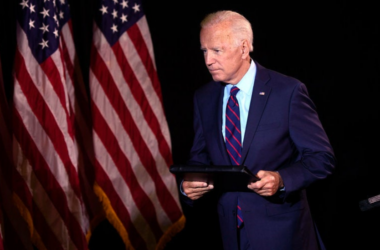In a surprising turn of events, Argentina has elected a far-right political figure, Javier Milei, drawing comparisons to former U.S. President Donald Trump, as its next president in a resounding victory. Milei’s term, slated to commence on December 10 and extend until the end of 2027, promises a departure from conventional economic policies, ushering in a period of radical change.
The election results, with Milei securing approximately 56% of the vote, surpassing expectations, reveal a shift in the political landscape. His opponent, Peronist Economy Minister Sergio Massa, conceded with just over 44% of the vote. This outcome thrusts Latin America’s third-largest economy into uncharted waters, bracing for a seismic shift in economic strategies.
Milei, a proud libertarian, has been dubbed an “anarcho-capitalist” and has gained attention for his unconventional campaign tactics, including wielding a chainsaw to symbolize his commitment to cutting state spending. His proposed policies include dollarizing the economy, abolishing the central bank, and privatizing the pension system, setting the stage for a substantial departure from the status quo.
In response to his victory, Milei expressed determination to address fiscal challenges, fix central bank issues, and propel Argentina forward. “Today, we return to the path that made this country great,” he declared, emphasizing a commitment to revitalizing the nation’s economic trajectory.
However, Milei faces significant hurdles, given Argentina’s prevailing economic crisis. The country grapples with an annual inflation rate exceeding 140%, widespread poverty affecting 2 in 5 citizens, and a historic drought impacting crucial agricultural regions. The complexities of governing in this context make the prospects of Milei’s ambitious economic reforms challenging.
Nicholas Watson, Managing Director of Teneo, highlighted the potential governance challenges, suggesting a “roller coaster” ahead. The feasibility of Milei’s proposals, including dollarization, central bank reform, and drastic spending cuts, remains a subject of skepticism. Observers anticipate a nuanced approach due to the intricate economic imbalances.
While critics question the practicality of Milei’s plans, supporters, such as Steve Hanke, a professor of applied economics at Johns Hopkins University, argue that his focus on dollarization is crucial for Argentina’s economic revival. Acknowledging the historical challenges associated with the peso, Hanke deems dollarization as both feasible and desirable, emphasizing its potential to stabilize the economy.
Jimena Blanco, Head of Americas at Verisk Maplecroft, emphasizes that Milei’s success in delivering structural reforms, particularly dollarization and central bank elimination, hinges on overcoming immediate hurdles. Blanco anticipates initial measures involving stringent fiscal, monetary, and FX policies to stabilize the economy and mitigate inflation, eventually paving the way for a potential shift towards dollarization.
As Argentina embarks on this uncharted economic course under Milei’s leadership, global observers keenly watch the unfolding developments, recognizing the significance of this shift in a nation historically marked by economic volatility and policy challenges.








